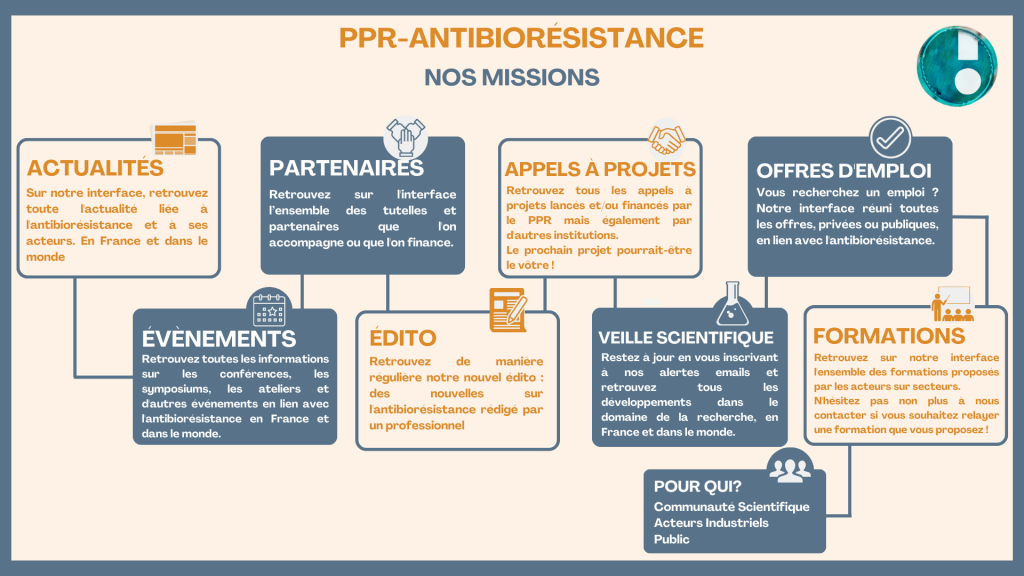To achieve these objectives, the interface is centred around:
- an overview of France’s research actors through:
- an inventory of the professionals, centres and networks involved in antibiotic resistance surveillance, in human, animal and environmental health;
- a database of research laboratories (public and private), to facilitate the reinforcement and creation of collaborations between different sectors;
- relationship mapping of the major fields of public and private research expertise, and of collaborations between European and international teams, derived from the creation of a bibliometric database. An annual update of this mapping will add an evolving overview of the research activities;
- a scientific literature watch monitoring the major national and international advances and breakthroughs in the field of antibiotic resistance;
- the publication of various events (training, seminars, conferences), employment and training opportunities, studies in preparation, ongoing or completed, patents and calls for projects on a single website to facilitate information-sharing, upskilling and the pooling of knowledge;
- the possibility for those with private access to automatically add elements to the website (news, publications, jobs, etc.);
- the shared and secure safeguarding of data.

TIMELINE
To give a dynamic and evolving overview of antibiotic resistance research and activities, a chronological summary of the main national and international initiatives, or international initiatives with a French involvement from January 2012 to date is provided below. These actions reveal an uptake in awareness of antibiotic resistance both in France and other countries, starting with the European Commission’s launch of the Joint Programming Initiative on Antimicrobial Resistance (JPIAMR) in 2012, which has mobilised 28 Member States so far (including France), aimed at funding and coordinating research. In France, the Carlet report, published in 2015, which presents the principal recommendations for reducing antibiotics consumption, constitutes the first of a series of national measures to confront the issue.
- French initiatives
- International initiatives
- International initiatives with French involvement